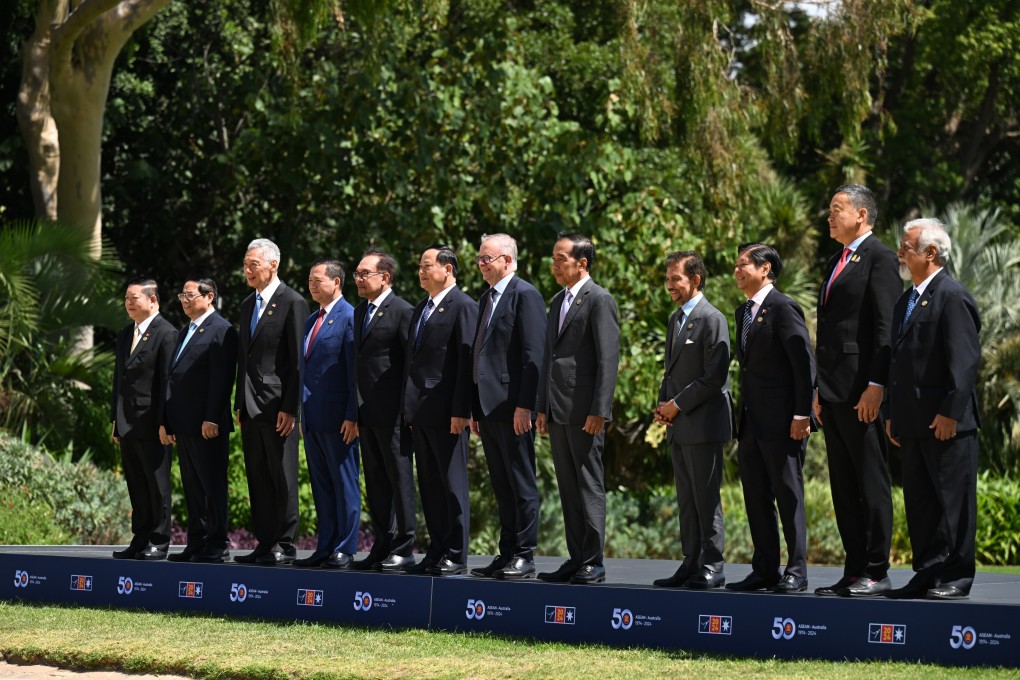Advertisement
Opinion | Australia-Asean summit exposed more than desire for economic deals
- The recent Australia-Asean summit in Melbourne was illuminating in areas of economic cooperation as well as hot-button geopolitical issues
- Agreeing on greater trade and investment was easy, but the South China Sea and Israel’s war in Gaza showed the wide diversity in opinion among attendees
Reading Time:4 minutes
Why you can trust SCMP
2

“The Special Summit marks a profound milestone in the partnership between Asean and Australia,” the leaders of Australia and Southeast Asian nations declared during their gathering in Melbourne to commemorate the 50th year of bilateral relations.
Advertisement
The gathering was both wide-ranging and forward-looking. Both sides committed to long-term strategic partnership on a whole host of issues, including infrastructure connectivity, green energy transition, humanitarian assistance, disaster relief capacity-building and people-to-people ties.
As a sign of its commitment to the region, Australia also committed A$2 billion (US$1.3 billion) to boosting bilateral trade and investment ties with Southeast Asia. The summit, however, took place in the shadow of multiple geopolitical flashpoints, which revealed profound fault lines not only between Canberra and Asean nations but also among Southeast Asian nations themselves.
Muslim-majority Asean states advocated for a tougher stance on Israel’s conduct and the deepening humanitarian crisis in Gaza. Meanwhile, there were also deep divisions within Asean over the South China Sea disputes.
Amid yet another major incident in disputed waters, the Philippines hoped to rally international support in its ongoing maritime struggle with China. But other key members such as Malaysia, which is also a claimant state, insisted they have no problems with China, with Prime Minister Anwar Ibrahim reiterating his warning against “China-phobia”.
Advertisement
In many ways, the summit marked a crowning diplomatic achievement for Prime Minister Anthony Albanese’s administration. It underscored Canberra’s renewed focus on Southeast Asia as a main thrust of its foreign policy agenda while also affirming Australia’s strategic relevance to a whole host of dynamic and geopolitically relevant nations.

Advertisement
